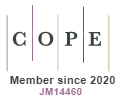Gender empowerment and equity: the current challenges of mozambican women
DOI:
https://doi.org/10.5585/dialogia.n37.17592Keywords:
Emancipation, Empowerment, Gender equity, Mozambican womanAbstract
This article aims to address “gender empowerment and equity: the current challenges for women in Mozambique”. Their political representation can be seen with a continuous process of disputes, controversies and, in recent decades, some progress in terms of formal equality. It means that women currently have the legal right to participate and represent political bodies. Contemporary women, from their achievements in various social, cultural, economic and political aspects, are faced with the need to reformulate their roles in the performance of tasks related to marriage, motherhood, family, sexuality and their career professional. The central objective is to analyze the contributions made by women to their empowerment and gender equity, looking at the main challenges they face today. The contribution of his ideas to Mozambican women is due, on the one hand, to institutional factors such as democratization, gender quotas and electoral systems; on the other, the new women's movements, regional and international, which resurfaced in the early 1990s, marked the debate of the Conference on Women in Beijing. The research is basically theoretical, starting from the bibliographic analysis of the works that deal with the subject, accompanied by the deconstruction that allowed the reading, interpretation and understanding of the texts. As a result, we hope that the text can contribute positively to rethink Mondlane, today, taking into account the idea of emancipation, economic empowerment and gender equity of Mozambican women who had this activist as their main promoter and the first steps in building education for all.
Downloads
References
BENHABIB, Seyla. O outro generalizado e o outro concreto. A controvérsia Kohlberg-Gilligan e a teoria feminista. In. BENHABIB, Seyla, Cornell, Drucilla (coord.). Feminismo como crítica da modernidade. RJ. Rosa dos Tempos, 1987, pp. 87-106.
BENHABIB, Situating the Self: Gender, Community and post-modernism in contemporary ethics. Cambridge, UK, Polity Press, 1992.
BIROLI, Flávia. Divisão sexual do trabalho e democracia. DADOS – Revista de Ciências Sociais, Rio de Janeiro, vol. 59, no 3, 2016, pp. 719 a 681.
CASIMIRO, ISABEL. Paz na Terra, Guerra em Casa. Série Colecção Brasil e África. Editora UFPE, 2014.
CONCEIÇÃO, da Íris & QUENANE, José Reich, Representação Política das Mulheres no Parlamento Moçambicano Análise sobre o Acesso e Exercício do Poder Legislativo, 2004- 2012, Maputo, 2013.
ENI, Orlandi. As reformas do Silêncio no movimento dos sentidos. Campinas, Ed. Unicamp, 2002.
FRAZER, Nancy. Rethinking the public sphere: a contribution to the critique of actually existing democracy. In: Calhon Craig (ed). Habermas and the public sphere. Cambridge, MIT Press, 1992, pp.109-142.
HABERMAS, Jürgen. Mudança Estrutural da Esfera Pública. São Paulo, UNESP, 2014.
MODIBO, Sheik Dadiarra & NDIAYE, B. Moustafa Cheikh. O menosprezo ocidental, Lágrimas de Sangue: Contos e contos da escravidão. Senegal, CCM, Brasil, 2015.
NIETZSCHE, F. W. O nascimento da tragédia, ou Helenismo e Pessimismo. Tradução J. Guinsburg. São Paulo, Companhia das Letras, 1992.
PATEMAN, Carole. The dissorder of Women: Democracy feminism and political theory. Stanford, Stanford University Press, 1989.
SERRA, Andrea. Survey on the status of Business Women in Mozambique, Maputo, IFC. http://www.revistamirabilia.com/Numeros/ Num3/artigos/art9.htm. 2007. consultada em 28-03-20.
VVaa. Samora M. Machel: História de uma vida dedicada ao povo moçambicano. Maputo, ARPAC-IISC, 2014.
VIDAL, Sara. A participação positiva das mulheres em Moçambique e na Tanzânia: Um estudo comparativo. Dissertação de Mestrado. Lisboa, IU, 2017.
Downloads
Published
How to Cite
Issue
Section
License
Copyright (c) 2021 Dialogia

This work is licensed under a Creative Commons Attribution-NonCommercial-ShareAlike 4.0 International License.






